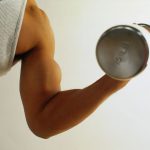
Much research has explored the mental and physical health benefits of maintaining social contacts well into later life. Studies also show that maintaining sexual health can have profound benefits that may include slowing down the aging process. Besides the exercise value of sex, research has found that sexual pleasure and intimacy may help ease everyday aches and pains, with effects that can last for a few days. Having frequent sex can boost your mood and even lead to a better outlook when you’re at work the next day — increasing both your job satisfaction and engagement. Add heart health to the list. A study of men in their 50s published in the American Journal of Cardiology found that having sex at least twice a week was associated with a 45% lower risk of heart disease compared to less frequent sex. It also showed that low sexual frequency may be linked to erectile dysfunction. A separate study found that quality rather than quantity seems to protect women from heart disease in later life. Other research has linked sex to some surprising benefits, such as boosting immune function. Though it might not seem like something you’d want to engage in during a migraine or cluster headache, a study published in Cephalalgia found that it can bring about partial or even total pain relief. And, last but not… read on >






















-300x200.jpg)













